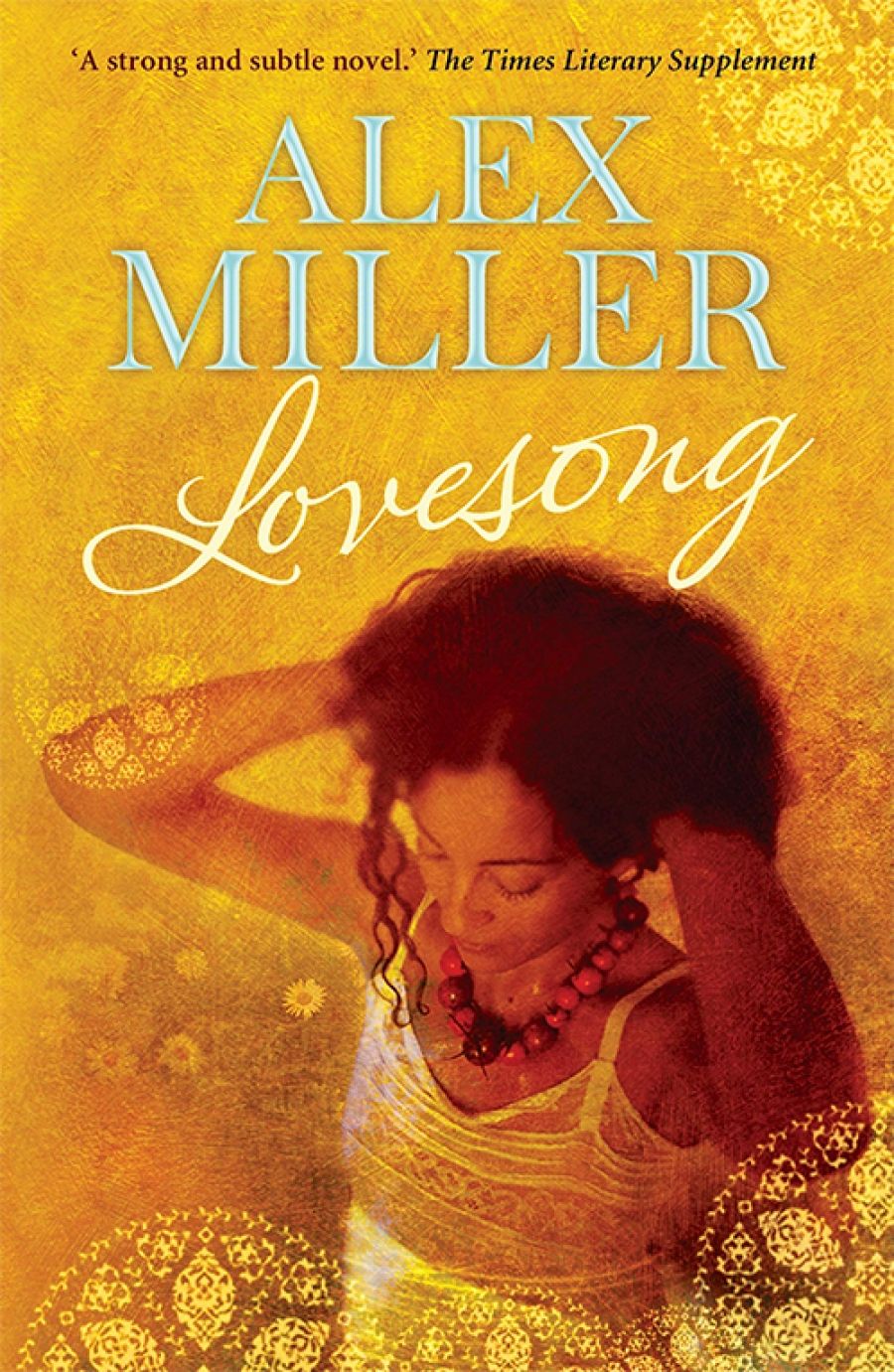
- Free Article: No
- Contents Category: Fiction
- Review Article: Yes
- Online Only: No
- Custom Highlight Text:
Alex Miller has been named as a finalist in the 2009 Melbourne Prize for Literature, a rich award given triennially to a Victorian author for a body of work. It is hardly surprising that a writer who has twice won the Miles Franklin Award and frequently been the recipient of, or short-listed for, other prizes should be among ...
- Book 1 Title: Lovestong
- Book 1 Biblio: Allen & Unwin, $35 pb, 354 pp, 9781742371290
The ambience of the two principal locales in this novel is of paramount importance: Melbourne and Paris, yes, but vital little quartiers within these great cities. Melburnians will easily visualise the narrator: an elderly writer who lives with his thirty-something daughter, walking past the bottle shop on the corner, stepping into the patisserie that used to be a dry cleaners, swimming in the open-air public pool and eating in the old Paradiso.
The elderly narrator strikes up an acquaintance with John Patterner, the Australian husband of Sabiha, a Middle Eastern pastry-maker. He listens to John’s account of his travels in France, his marriage to a beautiful Tunisian and the small café in Paris that he helped her to operate before they moved to Melbourne with their young daughter. The Vaugirard area of Paris may not be as familiar as Rathdowne Street (coincidentally, it is to this reviewer), but its obscurity is of no consequence. We quickly feel ourselves to be regulars of Sabiha’s café, even though its main clientèle is a group of Tunisian workers. For anyone who steps through the beaded curtain and inhales the delicious aromas, it is a second home.
Following each of these conversations, but without telling John, the narrator works on turning John and Sabiha’s story into his own last novel, recognising that underneath the warmth and hospitality lies anguish. Sabiha yearns for a child, her child, but appears to be barren. Her longing undermines her happiness, and threatens, but does not destroy, her relationship with John, the quiet Australian who drifted into her life. John helps Sabiha in her work, comforts her in her despair and dreams of taking her back to Australia – one day. But for a long time he is too ineffectual to make this, or anything else, happen.
John will arouse feelings of ambivalence in the book group, some readers applauding him for his devotion, others wanting to shake him for his dogged passivity. That opinion will divide over him is surely a sign of a well-drawn character; but although some aspects of John are only too predictable, not everything has been filled in. What does it mean, for example, that he arrived in Paris with almost no French but must now speak it exclusively, every day, to a wife whose native tongue is Arabic? Miller seems unaware of the issue; in fact, we have little sense of John’s making anything at all of his own life. Whether this is a conceptual fault or a deliberate ploy will also be grist for group discussion. Oblomov lying inert on his couch, all day, in his dressing-gown, is one of the most brilliant figures in Russian literature, but when John tries to console Sabiha’s terrible emptiness by repeating in a concerned voice, ‘I love you, darling’, female eyes may roll.
That strong, desperate Sabiha takes matters into her own hands is, by contrast, enthrallingly convincing; and the elderly narrator’s ability to wring a shocking and affecting story out of the impasse shows us exactly why Miller has won all those prizes. The most delicious moment of all is when John tells the narrator that he’s been grateful to have such a keen listener – it will help him to write the novel he has always dreamed of.


Comments powered by CComment